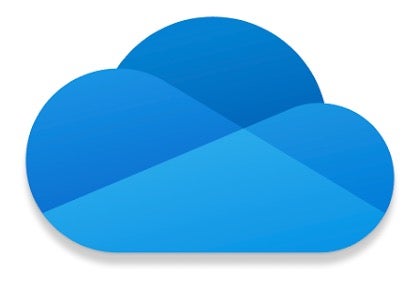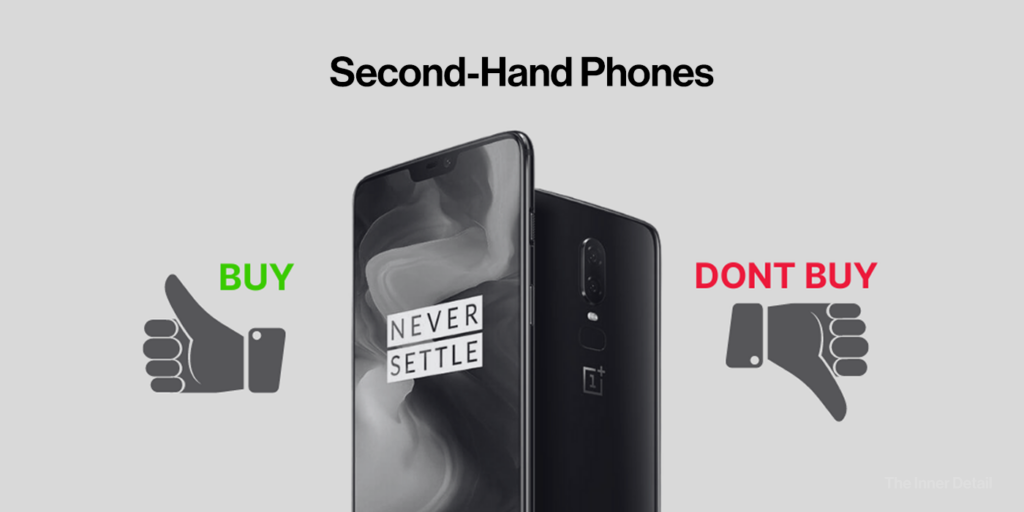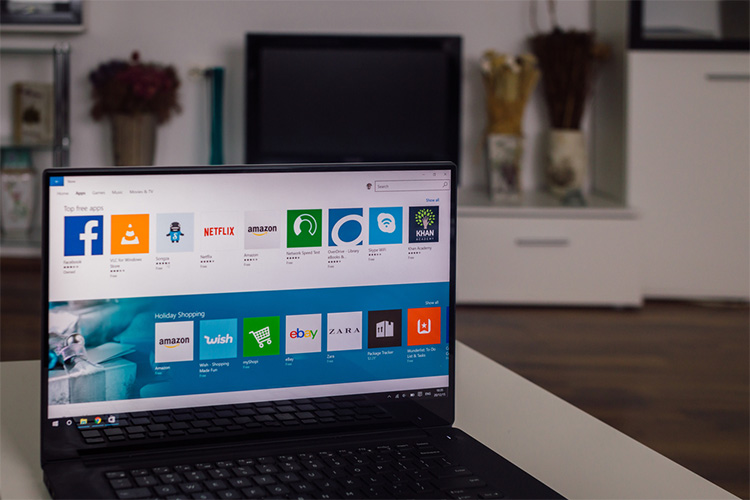In today’s digital age, managing and safeguarding personal files has become more critical than ever. From cherished memories captured in photos and videos to important documents and daily productivity tools, the need for reliable storage solutions is undeniable. This is where cloud storage steps in.
With an ever-growing number of cloud storage services available, choosing the right one for your personal needs can be overwhelming. To help you navigate this sea of options, we’ve compiled a list of the 7 best cloud storage apps for personal use, each offering unique features, pricing, and benefits tailored to different user preferences.
7 Best Cloud Storage Apps
1. Google Drive

Google Drive is a versatile cloud storage solution integrated with Google Workspace (Docs, Sheets, Slides, etc.), offering seamless collaboration and sharing options. It’s widely popular for its accessibility across devices and its free storage offering.
Best For: Android & Google Workspace users or those looking for robust collaboration tools to work.
| Pros: | Cons: |
| Generous free storage of 15 GB. | Storage shared across Gmail, Photos, and Drive, which can fill up quickly. |
| Real-time collaboration with Google Workspace apps. | No zero-knowledge encryption, raising privacy concerns. |
| Easy integration with Gmail and Android. | |
| Robust search capabilities using Google’s AI. |
Pricing: Free 15 GB; paid plans start at $1.99/month for 100 GB (Google One).
2. Dropbox

Dropbox is a pioneer in cloud storage, known for its intuitive interface and reliable file synchronization across devices. Dropbox offers many competitive features in its premium plans, including image watermarking, a built-in password manager, and remote data wipe options in case of device theft.
Dropbox is known for its low-maintenance syncing and cross-platform support. It is designed to be easy to use on any device, running automatically in the background. Dropbox makes it easy to share files and provides a simple way to indicate what is shared and what is not.
If you’ve recently purchased a HP consumer computer or Android tablet, you may be eligible for an additional 100 GB of Dropbox storage space. This promotional space is in addition to the 2 GB of free storage space included with a free Dropbox Basic plan.
Best For: Professionals and small teams needing third-party app integration.
| Pros: | Cons: |
| Highly reliable syncing across devices. | Free version offers only 2 GB of storage. |
| Extensive third-party integrations (e.g., Slack, Zoom). | Relatively expensive for individual users compared to competitors. |
| Smart features like Dropbox Paper for note-taking and collaboration. |
Pricing: Free 2 GB; paid plans start at $9.99/month for 2 TB.
3. iCloud

iCloud is Apple’s cloud storage service, deeply integrated into macOS and iOS devices, offering seamless backup and synchronization. It automatically backs up devices, making it easy to upgrade Apple devices and transfer all apps, files, and settings. iCloud runs in the background and syncs without sending notifications. It offers large storage plans such as 6TB and 12TB.
Best For: Apple device users who want effortless integration.
| Pros: | Cons: |
| Seamless syncing across Apple devices. | Limited compatibility with non-Apple devices. |
| Easy access to photos, files, and backups. | Free storage capped at 5 GB. |
| Affordable pricing. |
Pricing: Free 5 GB; paid plans start at $0.99/month for 50 GB.
4. OneDrive

OneDrive by Microsoft is a cloud storage service offering tight integration with Windows and Office apps like Word, Excel, and PowerPoint. It offers close integration with Windows and Microsoft 365 and makes it easy to work on Office files. OneDrive has a newly redesigned Photos tab that automatically organizes photos. It also offers cross-platform functionality on macOS and iOS.
Best For: Windows and Office 365 users.
| Pros: | Cons: |
| Integrated with Windows File Explorer for seamless access. | Free storage limited to 5 GB. |
| Comes bundled with Microsoft 365 for extra value. | Some users report syncing issues on non-Windows platforms |
| Reliable collaboration tools for Office documents. |
Pricing: Free 5 GB; paid plans start at $1.99/month for 100 GB.
5. iDrive
iDrive is a comprehensive backup solution offering cloud storage and advanced data recovery features for individuals and businesses. This cloud storage service is known for effortless backups. It offers a comprehensive backup solution, including physical drive shipments. It automatically backs up devices, including NAS drives and mobile phones. It is one of the only providers that offers a 100TB/month plan. iDrive is also the most affordable cloud storage service starting at just $2.95 / year for 100GB.
Best For: Users prioritizing backup and data recovery.
| Pros: | Cons: |
| Supports backup for unlimited devices. | User interface feels outdated compared to competitors. |
| Offers file versioning and hybrid backups. | No real-time collaboration tools |
| Most affordable large storage plans. |
Pricing: Free 10 GB. Plans start at $2.95/year for 100 GB.
6. Sync.com
Sync.com is a privacy-centric cloud storage service offering end-to-end encryption for maximum security. Sync is known for strong security and is easy to set up. It delivers a secure and speedy service that is useful for both personal and business users. It offers features such as password-protected links, download limits and versioning for 180 days. The service focuses on simple file syncing and has end-to-end encryption and two-factor authentication.
Best For: Users who prioritize file security and privacy.
| Pros: | Cons: |
| Zero-knowledge encryption ensures maximum data privacy. | No native integrations with third-party apps. |
| Unlimited file sharing with password protection. | Slower syncing speeds. |
| Competitive pricing for large storage. |
Pricing: Free 5 GB; paid plans start at $8/month for 2 TB.
7. Koofr
Koofr is a lightweight cloud storage service offering unique features like integration with other cloud platforms. Koofr is unique in that it is designed for managing multiple cloud storage providers in one interface. It allows users to combine multiple free accounts from the same storage provider or from different providers. It also offers built-in storage and a flexible pricing model for additional storage.
Best For: Managing multiple cloud accounts in one place.
| Pros: | Cons: |
| Integrates with Google Drive, Dropbox, and OneDrive. | Limited advanced features compared to competitors. |
| No file size limits for uploads. | No native mobile app for editing files. |
| Affordable small storage plans. |
Pricing: Free 10 GB; paid plans start at €0.50/month for 10 GB.
For Indians – Jio Cloud
Jio Cloud is a cloud storage service from Reliance Jio, aimed at Indian users, providing seamless file storage and sharing. Jio Cloud provides 100 GB of free data storage facility for Jio telecom users at no cost. It’s the only cloud-storage service offering upto 100GB of data storage for free. Jio would offer the most competitive prices in the market for those requiring additional storage beyond the free 100 GB. Jio is the only company which provides a huge size of 100GB as cloud service for free for its customers. Though Amazon Prime users have cloud-storage options too, they can only enjoy up to 5GB of storage for free.
Best For: Affordable localized cloud storage for Indian users.
| Pros: | Cons: |
| Affordable pricing. | Limited global presence. |
| Easy-to-use mobile app with offline access. | Fewer advanced features compared to international providers. |
| Free storage tied to Jio services. |
Pricing: Free 100 GB; additional plans available based on Jio subscriptions.
Comparison between the Cloud storage services
| App/Website | Best For | Free Storage (GB) | Pricing Starts From |
| Google Drive | Google Workspace users and collaboration. | 15 GB | $1.99/month for 100 GB, $2.99/month for 200GB, $9.99/month for 2TB |
| Dropbox | Professionals needing seamless sync and sharing. | 2 GB | $9.99/month for 2 TB, $16.58/month for 3TB & more |
| iCloud | Apple users. | 5 GB | $0.99/month for 50 GB, $59.99/month for 12TB & more |
| OneDrive | Windows and Office 365 users. | 5 GB | $1.99/month for 100 GB, $6.99/month for 1TB, $9.99 for 6TB (shared between 6 users) & more |
| iDrive | Comprehensive backups for multiple devices. Most Affordable. | 10 GB | $2.95/year for 100 GB, $9.95/year for 500 GB, $69.65/year for 5TB & more |
| Sync.com | Privacy-focused file storage. | 5 GB | $8/month for 2 TB, $20/month for 6TB & more |
| Koofr | Managing multiple cloud accounts. | 10 GB | €0.50/month for 10 GB, €10/month for 1TB & more |
| Jio Cloud | Affordable storage for Indian users. | 100 GB | Pricing tied to Jio plans |
What I recommend?
Storing your personal files and documents in cloud will have some amount of risk, no matter how encrypted or secure the company’s storage services are. I recommend choosing a specialized, well-known players like Google, OneDrive, iCloud and Dropbox. Also it’s suggested to locally store secretive files either in hard disk or pendrive (IYKYK).
Pro Tips
If you aren’t able to afford for cloud-storage services, but you’ve time to manage the files, then here’s a tip for you. Open accounts in all of the above-mentioned apps / websites and you’ll get a free storage of 34 GB if you’re a non-Indian and 134 GB if you’re an Indian and Jio user. Also, try opening two or more accounts in platforms which have the maximum free storage like Google Drive, so you can enjoy more free storage.
There’s also another hack with Google Drive. If you’ve any of your family members or friends studying in school or college with an “@__.edu” or “@___.org” email-ID, then you’ll have a 100TB of free storage for real. Schools and universities have a baseline of 100 TB of pooled storage shared across users and accounts, which you can take advantage of. However, this trick is only applicable for the valid duration of the email-ID provided. Some institutes may deactivate the ID if the student leaves the campus.
(For more such interesting informational, technology and innovation stuffs, keep reading The Inner Detail).
Kindly add ‘The Inner Detail’ to your Google News Feed by following us!







